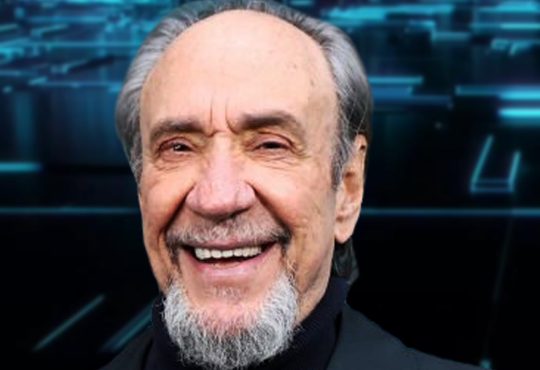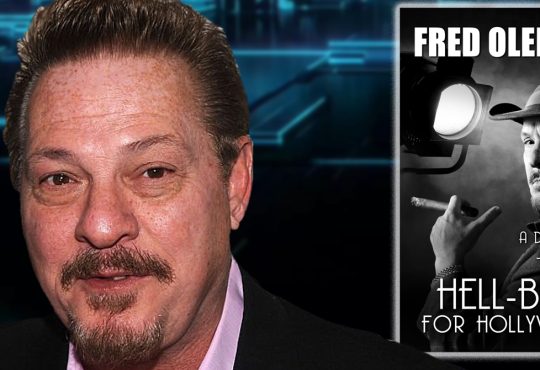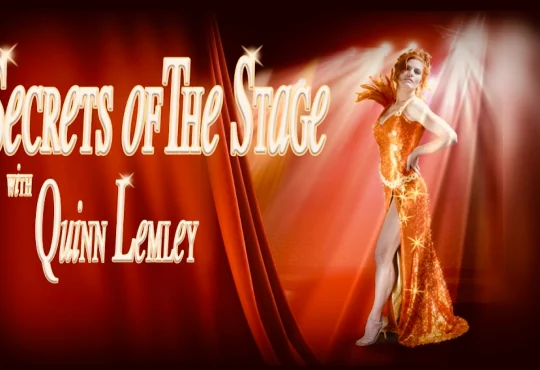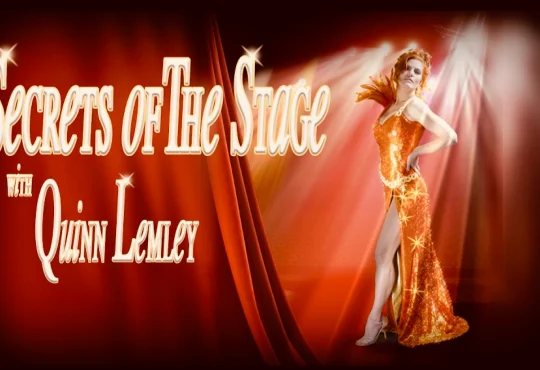‘Winning Time’ Recap: Three Coaches Walk Into a Bar, and a Fish Saves Pittsburgh
A review of this week’s Winning Time, “The Good Life,” coming up just as soon as we attend the premiere of The Fish That Saved Pittsburgh…
Midway through “The Good Life,” Magic Johnson joins the rest of the Lakers for the world premiere of The Fish That Saved Pittsburgh, a 1979 basketball comedy which features several of his new teammates in small roles. Before we can talk more about this episode, we must first discuss a few things about one of the most infamous sports movies ever made:
1) The Fish That Saved Pittsburgh stars Julius “Dr. J” Erving — a.k.a. Magic’s favorite player growing up — as Moses Guthrie, the frustrating star of a floundering pro basketball team. To rejuvenate the club’s fortunes, the team ballboy — with the help of an astrologer played by, of course, Stockard Channing — convinces management to hold open tryouts for an entirely new roster around Moses, composed solely of other people with the same astrological sign, Pisces. This is the actual premise of the movie. Like Rick James said, cocaine is a hell of a drug.
2) Though the plot is dire, and most of the attempts at comedy are even worse, the scripted basketball footage is kind of fun, as you might expect from a fictional team whose members include both Dr. J and legendary Harlem Globetrotter trickster Meadowlark Lemon. (The roster as a whole, though, is a clumsy Village People pastiche: Lemon plays a minister who finds a new calling on the hardwood, while other players include a former DJ, a Native American who lets out war cries while going to the basket, and a Muslim man who wears a keffiyeh as part of his uniform.)
3) Kareem Abdul-Jabbar, Norm Nixon, and several other Lakers play themselves — though as we see in this episode, Norm was mostly cut out of the film. But because the movie did not have the rights to use an NBA property, they are not members of the Lakers. And because the movie is largely bereft of ideas, they are introduced(*) for the championship game against the Pittsburgh Pisces as “the Los Angeles… team!” No one even bothered to think up a fake name! It could have been something alliterative (Los Angeles Leopards?), a play on the real name (Los Angeles Rivers?), or literally anything at all. Not difficult. And yet. Again, cocaine is a hell of a drug.
(*) Because I will never have another venue in which to discuss The Fish That Saved Pittsburgh, I have to note that while the Los Angeles Team gets short shrift naming-wise, they actually get a cooler intro in the championship game than the hometown Pittsburgh Pisces do! Which would you rather do: run onto the court through a tunnel of lasers while ominous music plays, or descend verrrrryyyyy slooooowwwwlyyy out of the sky in a hot air balloon where no one can see you until after you’ve climbed out? Also, how much time had to elapse between the balloon landing and the actual tip-off of the game? Did they collapse the balloon and drag it out? Did someone have to fly it up again through the arena’s retractable roof? And another thing about this mov—
[Editor’s note: This Sepin-rant has now gone wildly off-topic, even by the author’s standards, so we’ll just jump ahead to the point that’s relevant here.]
4) Perhaps most importantly while we’re on the subject of “The Good Life” — and, most surprisingly, a fact not emphasized in the course of the episode — the coach for the Los Angeles Team is none other than Jerry Tarkanian, whom Jerry Buss spends most of the hour pursuing to replace Jerry West(*).
(*) As I warned you last week, this show has way too many Jerrys. And I say this as the son of a Jerry.
Our story amusingly picks up five minutes after the end of the previous episode, and suddenly, the roles are reversed between Buss and West, as the latter sits calmly while the former rants and raves at him. The Logo has left the team high and dry, Buss exclaims, while West insists he is doing the team a favor by stepping down from a job to which he feels he is unsuited. It’s a great gag, even if, as we discussed last week, the real Buss expected to be replacing his head coach when he bought the team. And the scene sets us up for an hour about three potential Lakers coaches for whom the the Forum seems more promising than their current circumstances: college basketball lightning rod Tarkanian (played by an unrecognizable Rory Cochrane), longtime NBA assistant Jack McKinney (Tracy Letts), and Jerry West’s former Laker teammate Pat Riley (Adrien Brody under floppy hair and a floppier mustache).
Well, for now, it’s just Tarkanian and McKinney who are up for the main gig, while Riley spends the episode trying to get a job as Chick Hearn’s new partner on the Laker broadcast team(*). But history is not a spoiler, and we know Pat Riley would eventually become the famous and celebrated coach of the Showtime Lakers. And it does not feel like a coincidence that his story is presented alongside Tarkanian being pursued for the head coaching job by Buss, while West realizes that McKinney — the tactician who was a big part of the 1977 Portland Trail Blazers’ underdog NBA Finals victory over Dr. J’s loaded Philadelphia 76ers squad — should be their man.
(*) In real life, Riley and Hearn started working together several years before the events of this season, but dramatizations often expand and contract timelines like this. (See also: Being the Ricardos cramming events that happened over multiple years into a single hectic week for Lucy and Desi.)
Riley was no great shakes as an NBA player. He spent the bulk of his nine seasons coming off the bench, and not just because he was backing up guys like West and Elgin Baylor. But he was tenacious as hell, and he won a championship ring alongside West, Wilt Chamberlain, and company in 1972. On the whole, he vastly exceeded the athletic career of his baseball player father, who spent decades in the minor leagues and only four days on a Big League roster (during one of the World War II seasons when MLB was desperate for anyone who could play and wasn’t fighting overseas). When we catch up to Riley here, he should be enjoying the good life of the episode’s title: living near the beach, playing volleyball, and basking in the company of his therapist wife, Chris. (She’s played by Gillian Jacobs, who adds to the “Is everyone in Hollywood in this show at some point?” feeling.) But the good life is an unfulfilling one for a pathological competitor, leaving him an exposed nerve constantly getting into trouble. He wanders into one of Chris’ sessions with a client, obsessively records audition tapes for Chick — who is skeptical that Pat’s “faggy” voice is suitable for television — and eventually tears apart his garage out of frustration at his inability to pull out the weeds that are growing around it. The real Riley is currently among the most prominent people fictionalized on this show, and the bored, directionless, somewhat deferential man we see here feels very far back on the path from the guy he will become famous as later. Brody isn’t the most obvious choice for the part (other than being a rare tall actor in Hollywood), but he’s instantly compelling here.

Rory Cochrane as Jerry Tarkanian.
Warrick Page/HBO
Jerry Tarkanian, meanwhile, had been coaching for nearly a quarter century by the time Jerry Buss came calling, and the previous half-dozen as head man for the UNLV Runnin’ Rebels. He was among the most successful coaches the college ranks have ever seen, and among the most controversial. As “The Good Life” lays out, Tark the Shark was constantly under investigation by the NCAA for various infractions. In that respect, a move to a league where everyone expects players to be paid would make a lot of sense. But Jerry Buss’ charm seems incapable of penetrating Tarkanian’s no-frills persona. Buss insists you can apply math to any problem, and in this case it’s about presenting a large enough figure — $750,000 per year, a fortune for a coach in 1979(*) — to appease both Tark and his sketchy advisor, Vic Weiss (played by Broadway actor Danny Burstein). Vic takes over the narration duties for a few moments in the show’s latest burst of hyperactive style, and he seems particularly anxious to get his buddy a big payday — while also somehow not angering the local wiseguys who seem invested in Tark staying at UNLV.
(*) Factoring in inflation, that would be about $3 million in today’s money. Given the boom in what coaches are now paid — a boom created in part by none other than Pat Riley — that would make Tarkanian among the lower-paid NBA coaches today.
The episode’s conclusion offers a hint as to why he was so nervous, as Vic’s corpse is found in the trunk of a car, Jerry Buss’ business card resting on his face. This is not really a case of Winning Time sensationalizing the details: as recounted in Jeff Pearlman’s Showtime book, the real Weiss was murdered and left in a trunk, and he had on him $38,000 in cash from a meeting with Buss and Jack Kent Cooke, who in reality was still involved in team operations at this stage of things. It is also not close to the strangest thing to happen to the team that season, though here it very much casts a pall over the plan to hire Tarkanian. But Tark also didn’t seem particularly enthused about going to the pros anyway, despite his never-ending fights with the NCAA’s powers that be.
As for McKinney, he seems to conclude the episode relegated again to bridesmaid’s duties. But his situation is a complicated one. In modern sports, the number two guy on an upstart champion like that ’77 Blazers team would have absolutely been hired away to be a head coach elsewhere — especially someone who was credited by his boss, Jack Ramsay, for much of the X’s-and-O’s brilliance that allowed Bill Walton and friends to flourish. The version we see here, though, is a buttoned-down man who seems at once supremely confident in his abilities and acutely aware that your ability only takes you so far if you wind up in the bad situation. He has avoided taking other jobs, he suggests to Jerry West, because he is waiting for the exact right team and moment in which to apply his new schemes. With Magic Johnson available to run the offense, and with another all-time great big man in Kareem to operate out of the low post, these Lakers would seem to be that opportunity, and even the skeptical Jerry West is converted after studying a lot of Portland game film. Jerry Buss, though, is off chasing stars rather than geniuses, and he understandably doesn’t want to listen to the advice of the former coach who just left him high and dry.
Buss and Magic don’t exactly recede into the background this week, but “The Good Life” acknowledges that the story of this Lakers team is much bigger than these two men. The expanded focus on three potential new Laker hires turns out very satisfactorily on a narrative level, even if none of the characters quite seem to be getting what they want by the end of the hour. The fish saves Pittsburgh, but it does not seem as if Tark the Shark will be the Lakers’ savior.

Sheaun McKinney, left, as Zastro, with Quincy Isaiah as Magic Johnson.
Warrick Page/HBO
Some other thoughts:
* Rather than use the movie premiere as another link between the Lakers and Tarkanian, the episode instead turns it into the latest step on Magic’s journey through the more indulgent possibilities open to him as a huge star in Los Angeles. Outside the theater, he’s approached by a shady character named Zastro, and ignores teammate Jamal Wilkes’ warnings about the guy, slipping out of the screening (can’t blame him there) to attend one of Zastro’s debauched house parties in Crenshaw. Later, we cut between Magic on the phone with Cookie, Magic having enthusiastic sex at Zastro’s place, and the young Magic doing play-by-play for himself as a kid. On the phone, he raves to Cookie about the love the premiere crowd showed for (a pre-infamy) Bill Cosby. Cookie suggests that was not love, but at the moment, Magic seems incapable of separating blind adulation from the kind of sincere and personal love Cookie clearly wants from him.
* Finally, Jerry Buss taking us through the elaborate ritual he uses to create his combover is funny while also evoking the similar scene in American Hustle. But the understated payoff here is excellent: When Buss and Frank dine with Tarkanian, Tark says a friend once taught him to comb his own thinning hair over, but he knew it wasn’t fooling anyone, so he got a crewcut instead. These two Jerrys are not at all a stylistic match, are they?







